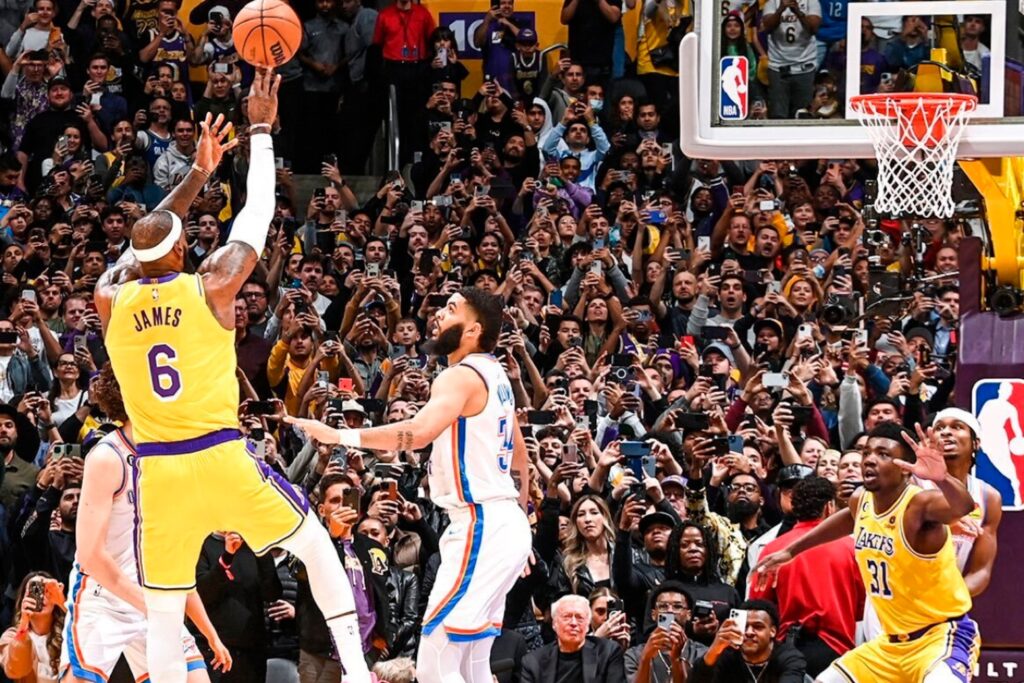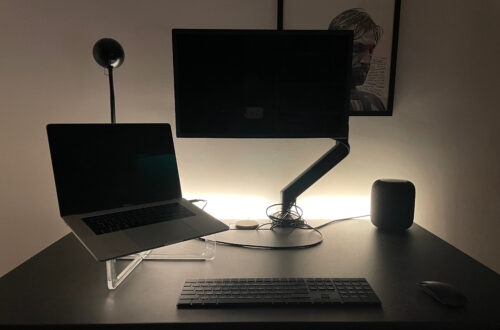Are We Merely Voyeurs to Our Own Lives? The Impact of the Digital Age on Sporting Events and Music Concerts
The 16th-century philosopher Sir Francis Bacon proclaimed that “ipsa scientia potestas est” – knowledge itself is power. This notion has shaped the progress of societies since time immemorial, right down to the manner in which we document our present. Yet, as we perch on the precipice of the digital age, one can’t help but ponder: Are we merely voyeurs to our own lives?
Step back to the era of daguerreotypes and cumbersome camera equipment. Capturing moments was a deliberate, careful act, reserved for milestones and monumental events. The rise of handheld cameras brought the everyday into frame, yet the tangibility of photographs rendered them objects of reverence. Today, with the advent of smartphone technology, we are awash in an incessant stream of digital imagery, reducing lived experiences to the confines of portrait-oriented screens and online posturing: “See? I was there!”.
Yet, consider the design of our biological apparatus for experiencing the world – a rich, horizontal panorama painted by our eyes, the audial canvas of our ears, the tactile and olfactory symphony, all working in harmony.
Fast forward to today, our insatiable quest to digitally document overshadows our need to be present, to absorb the world in its unfiltered glory. Whether at a sporting event or a music concert, the true magic of the moment is in surrendering to the visceral onslaught of sound, the pulsating rhythm of the crowd, the intoxicating smell of excitement and anticipation – aspects that can scarcely be captured through the narrow window of a smartphone camera.

The Transformation from Spectators to Performers
As individuals today, we oscillate between the role of spectator and performer, often in our own lives. The incessant need to record, to present an idealised version of ourselves and our experiences online, has led to a disconnection with reality. It is as if we are viewing life through a glass darkly, a filtered and curated projection rather than the messy, beautiful, chaotic reality.
Imagine the implication this carries on a broader scale. The ‘Fear of Missing Out’ (FOMO), a malady of the social media era, is a testament to the conundrum of living life second-hand. Are we surrendering our power to fully experience, substituting it with a superficial, digitised version of reality in the hope that we’ll get a dopamine hit in the form of “Ur so lucky” comment underneath the poorly shot portrait-framed image?
Diminishing Crowd Atmosphere at Sporting Events and Music Concerts
Indeed, the roar of a crowd at a sporting event or the collective ecstasy at a music concert – once hallmarks of live experiences – appear to be diminishing, replaced with a conspicuous quiet as spectators focus more on capturing the spectacle rather than participating in it. Take for instance the 2020 Tokyo Olympics, an event steeped in a deafening silence largely due to the pandemic, yet also eerily mimicked in subsequent events, even those with crowds present.
A study by the University of Southern California, analysing crowd noise at American Football games over the past decade, confirmed this trend. While the study primarily attributed quieter stadiums to the rise in ticket prices, it also highlighted how fan behaviour has significantly changed. The traditional passionate chanting and cheers have given way to the hum of conversation and, more notably, the quiet of intense focus as fans capture moments of action through their smartphone lenses.
This is a phenomenon that transcends the Atlantic too. A 2021 survey by the UK’s Football Supporters’ Federation reported a palpable shift in matchday atmosphere, as fans are increasingly engrossed in their phones, filming rather than cheering. The spine-tingling sensation of a crowd united in song, the electric anticipation that buzzes through the air during a penalty kick, the collective roar at a match-winning moment – these crucial elements of the live sports and concert experiences are dwindling.
Thus, not only are spectators trading the live sensory spectacle for a digital facsimile, they are also transforming the nature of the shared experience. Both sporting events and music concerts, collective expressions of passion, have become somewhat detached, the communal thrill replaced with a silent, individual act of recording. The irony is palpable – in our endeavour to capture the thrill, we’re dissipating the very essence of it.

Gesamtkunstwerk: The Total Work of Art Undermined by Bad Camerawork
This trend undermines the concept of ‘gesamtkunstwerk’ – the total work of art. Originally coined by Richard Wagner, it embodies the notion of a comprehensive, universal artwork that synthesises various art forms. Music concerts, with their fusion of auditory, visual and emotional elements, are the epitome of gesamtkunstwerk. Sporting events, too, are a modern manifestation of gesamtkunstwerk, a sensory spectacle that amalgamates the drama of competition, the visual ballet of athleticism, and the auditory tapestry of fan interaction.
In the immortal words of Greek philosopher Heraclitus, “No man ever steps in the same river twice, for it’s not the same river and he’s not the same man.” The fleeting nature of experiences, especially those at sporting events and music concerts, is what makes them unique, unforgettable. Trying to bottle this ephemeral magic may only serve to dilute it, leaving us with an echo of the spectacle rather than the spectacle itself.
As we delve further into this digital landscape, this question should echo in our consciousness: Are we living to capture or capturing to live? We seem to be standing at the crossroads, and the path we choose will have profound implications on our relationship with the world around us and with ourselves.
Is it not time to revisit the wisdom of Bacon, to acknowledge that knowledge, and by extension, power, resides not merely in the recording but in the experiencing? Like the curious case of Schrodinger’s cat, our reality exists in a multitude of states until observed. But the key lies in observing with all our senses, not through the singular, limiting perspective of a smartphone lens.
The challenge we face as a society is twofold: to adapt to the emerging trends of digital life, while retaining our innate capacity for multi-sensory experiences. It is time to recalibrate our relationship with technology, to recognise it as a tool, not the master. The richness of life lies not within the confines of a pixelated screen, but in the boundless expanse of our senses, in the ability to be truly present in each moment.
In the words of the French novelist Marcel Proust, “The real voyage of discovery consists not in seeking new landscapes, but in having new eyes.” Perhaps it’s time we put down our phones and opened our eyes, our ears, our senses, to the wondrous panorama of existence that lies before us. After all, isn’t it time we started living in the moment, rather than merely capturing it?


